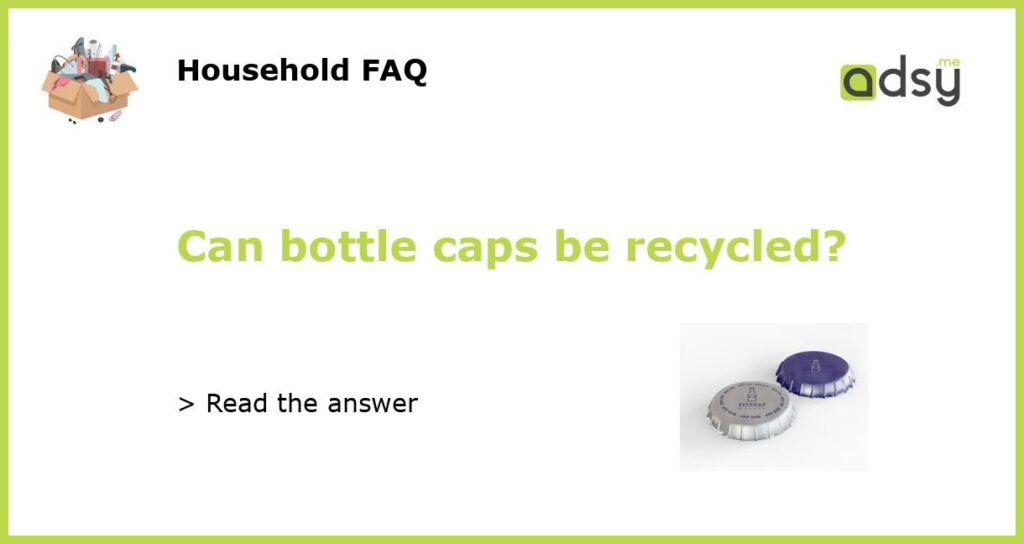Why Bottle Caps Recycling Matters
Bottle caps are small and seemingly insignificant, but they can have a big impact on our planet. According to Earth Eclipse, every year, billions of bottle caps end up in landfills or oceans, where they can take hundreds of years to decompose. This not only contributes to pollution but also harms wildlife that may mistake the caps for food. Recycling bottle caps can help prevent these negative environmental impacts.
Types of Bottle Caps that Can Be Recycled
Not all bottle caps can be recycled, so it’s important to check with your local recycling center to determine which types they accept. Generally, plastic bottle caps made from polyethylene or polypropylene can be recycled. However, metal bottle caps may need to be separated and recycled separately from the bottle itself.
How to Properly Recycle Bottle Caps
Before recycling bottle caps, it’s important to prepare them properly. According to Recycle More, plastic bottle caps should be left on the bottle and screwed tightly to prevent them from getting lost in the recycling process. On the other hand, metal bottle caps should be detached and placed in a separate collection bin. It’s also important to rinse the bottle and cap before recycling to remove any leftover liquid or residue.
What Happens to Recycled Bottle Caps
Recycled bottle caps can be turned into a variety of products, including new bottles, plastic lumber, and even car parts. According to Waste 360, some companies have even started using recycled bottle caps to create prosthetic limbs for children in need. By recycling bottle caps, we can reduce waste, conserve resources, and support innovative initiatives.
Recycling Bottle Caps Is Worth It
Recycling bottle caps may seem like a small effort, but it can make a big difference in protecting our planet. By checking the types of bottle caps that can be recycled, preparing them properly, and supporting companies that use recycled materials, we can all play a role in creating a more sustainable future.






